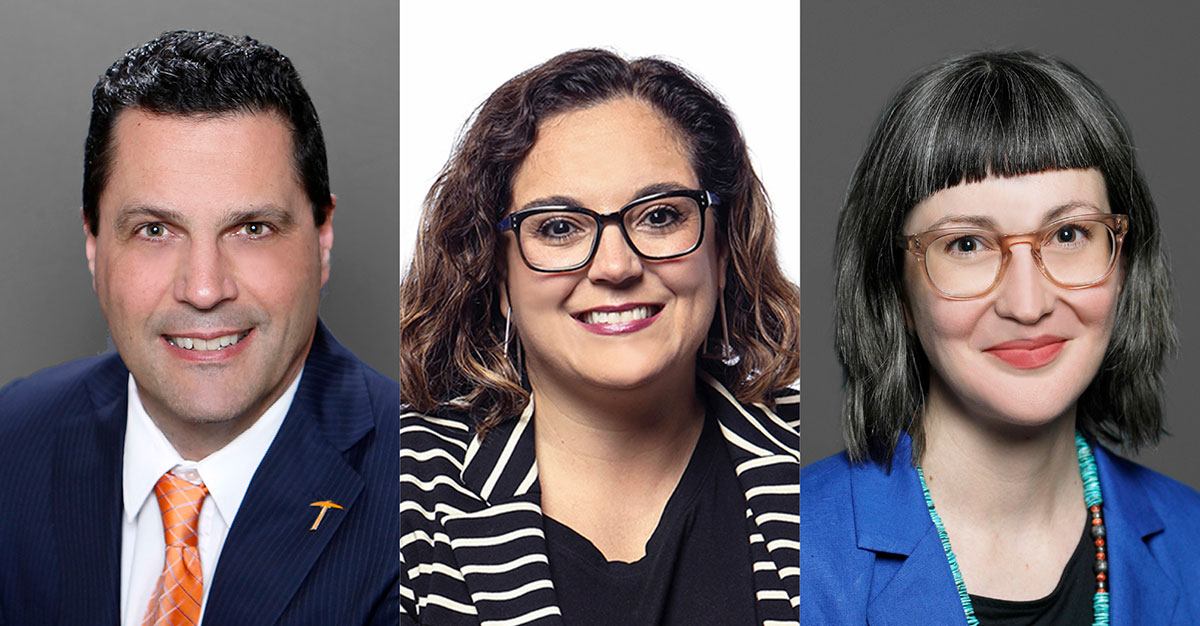
National Group Involves UTEP in Ph.D., Humanities Study
Last Updated on October 13, 2021 at 3:00 PM
Originally published October 13, 2021
By Daniel Perez
UTEP Communications
The University of Texas at El Paso recently started its participation in the Council of Graduate Schools (CGS) PhD Career Pathways Humanities Coalition Grant Writing Project, an innovative multi-institutional effort to highlight the diverse career opportunities available to new doctoral graduates in the humanities.

UTEP was one of 10 U.S. doctoral degree-granting institutions selected for this project. The contributing institutions will develop and assess initiatives to better support Ph.D. students as they transition from graduate programs to the workforce. The CGS awarded UTEP $48,000 to participate in this program, which will last approximately 2½ years. It began September 2021.
The UTEP portion of the project will provide doctoral students in the Borderlands History, and Rhetoric and Composition programs with the skills and knowledge to secure research resources, scholarship and programs, as well as to become successful grant writers. These graduates will be ready for careers in university-sponsored programming, nonprofit leadership and corporate relations.
“Grant writing is very important in all disciplines but there is less focus on this in humanities than STEM (science, technology, engineering and mathematics),” said Stephen Crites, Ph.D., dean of the University’s Graduate School and the principal investigator of the UTEP team. “This grant is aimed at helping students in the humanities to develop grant-writing skills.”
Crites said the University was eligible for this program because the CGS previously awarded funds to UTEP in 2020 to study humanities doctoral students’ career pathways and preparation for diverse careers. Humanities includes a spectrum of subjects such as English, history and foreign languages. The subjects promote critical thinking, analysis and creativity.
He said that his team, which includes representatives from across campus and external partners, would work to prepare students for various careers to include those outside academia. His Co-PI’s are members of his Graduate School leadership team: Lucía Durá, Ph.D., associate dean, and Shannon Connelly, Ph.D., assistant dean.
Durá said that the team would focus on transferable skills that will help students adapt to changing jobs markets and give them more options as they consider career goals.
This effort is an extension to a prior study of STEM and humanities Ph.D. students and alumni who attended 75 U.S. doctoral institutions. The researchers collected data about the students’ professional aspirations, career pathways and career preparation. Some data indicated that humanities graduates, especially those in the early stages of their careers, felt less prepared to work in business, nonprofit or government sectors.
“Building on the extraordinary work of the PhD Career Pathways project, The Humanities Coalition will develop, expand and scale up a suite of programs and practices in key areas of need,” said Suzanne Ortega, CGS president. “We’ve been conducting research in career diversity for nearly a decade, and this work will take the next logical step from better understanding aspirations to preparing for successful careers. We know that humanities Ph.D.s have many possible career paths in front of them. We need to make sure they know their options, how to access them, and that they’ve developed the skillsets necessary for success.”
The CGS, based in Washington, D.C., consists of approximately 500 institutions of higher education in the United States and Canada that are engaged in research, graduate education and the preparation of candidates for advanced degrees. The organization’s mission is to improve and advance graduate education, which it accomplishes through research, advocacy in the federal policy arena, and the development and dissemination of best practices.
